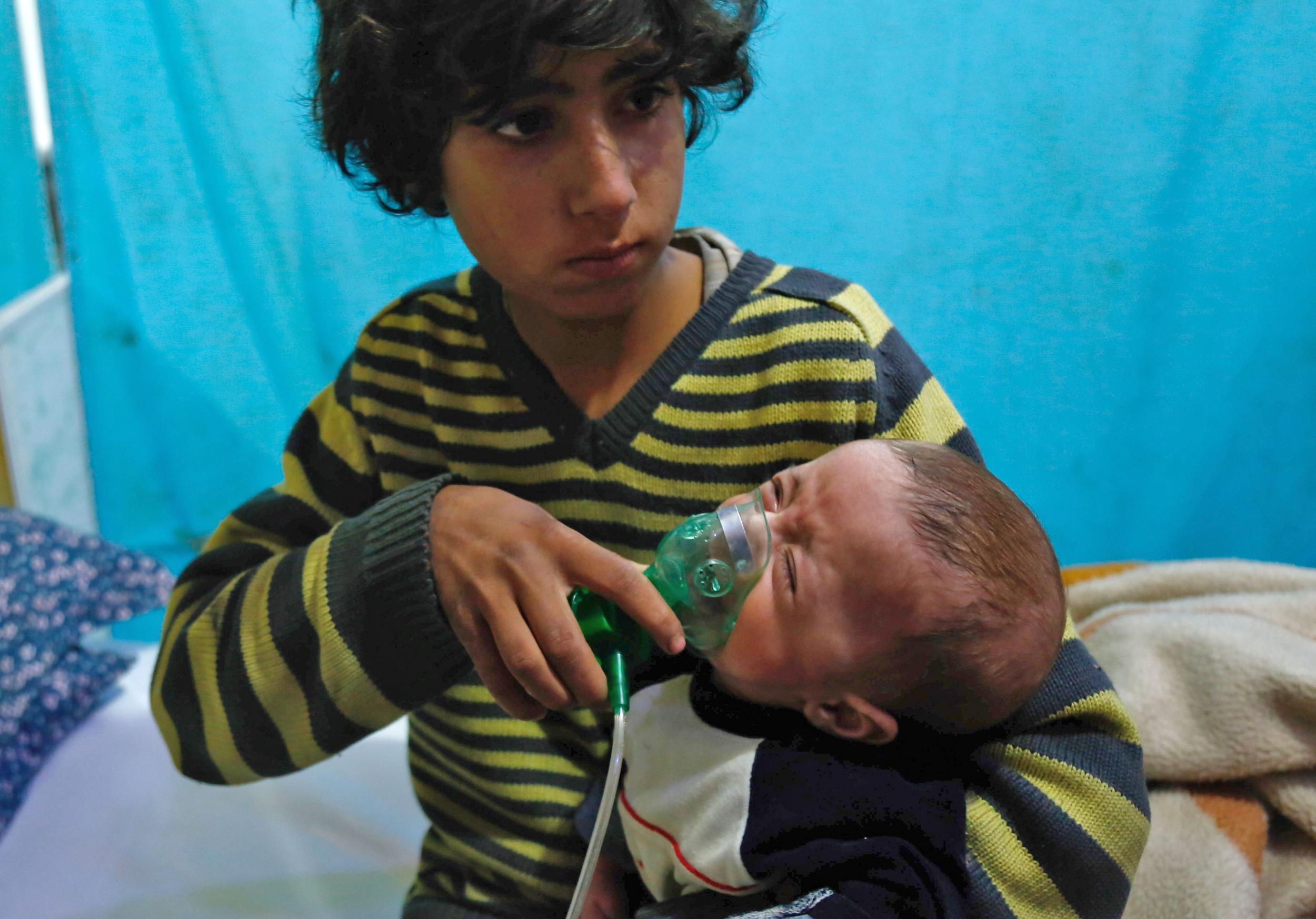UN pleads for end to ‘massacre’ in eastern Ghouta: ‘We will be judged by history’
More than 400 people have been killed in a ferocious five-day assault on the besieged rebel-held suburb of Damascus

Your support helps us to tell the story
From reproductive rights to climate change to Big Tech, The Independent is on the ground when the story is developing. Whether it's investigating the financials of Elon Musk's pro-Trump PAC or producing our latest documentary, 'The A Word', which shines a light on the American women fighting for reproductive rights, we know how important it is to parse out the facts from the messaging.
At such a critical moment in US history, we need reporters on the ground. Your donation allows us to keep sending journalists to speak to both sides of the story.
The Independent is trusted by Americans across the entire political spectrum. And unlike many other quality news outlets, we choose not to lock Americans out of our reporting and analysis with paywalls. We believe quality journalism should be available to everyone, paid for by those who can afford it.
Your support makes all the difference.As the besieged rebel enclave of eastern Ghouta in Damascus prepared for a fifth straight day of bombing, the UN has demanded an end to the violence, which it called “hell on earth”.
“Eastern Ghouta cannot wait,“ Secretary-General Antonio Guterres told the UN Security Council at an emergency meeting on Wednesday night.
“This is a human tragedy that is unfolding in front of our eyes and I don’t think we can let things go on happening in this horrendous way,” he continued.
“There is a need for avoiding the massacre, because we will be judged by history,” the UN’s Syria envoy Staffan de Mistura added.
Sweden and Kuwait have called for a vote on a resolution ordering a 30 day ceasefire throughout Syria and the immediate delivery of aid to millions of people in need.
Members states are due to meet later on Thursday.
Russia, which has often used its power as a permanent member of the security council to veto action in Syria, has said it will consider supporting the ceasefire as long as it does not cover Isis and al Qaeda-linked groups.
The cessation in hostilities is possible as long as it does not cover Isis, the Nusra Front and other groups who are shelling residential quarters of Damascus, Foreign Minister Sergei Lavrov said ahead of the meeting.
Eastern Ghouta is technically covered by a de-escalation agreement reached by world powers last year.
The regime says al Qaeda-linked groups operating in the area are not part of the deal - raising the possibility that Russia's openness to a ceasefire deal would not include the current operation there.
At least 400 people, including 92 children, have been killed in eastern Ghouta since Sunday, when Syrian President Bashar al Assad and his Russian allies launched one of the fiercest air assaults in the entire seven-year-old conflict.
Pictures and video emerging from the area show horrendous levels of suffering for Ghouta’s 400,000 residents, already starving thanks to a five-year-long siege. Children cry out for their parents, covered in blood and choking on dust.
“People are hiding under the ground in tunnels, building new ones,” resident Wasim Khatib said.
“But there is no escape. It is useless.”
Hospitals are so overwhelmed patients are being treated on floors streaked with blood. A staggering 22 medical facilities have been damaged by the strikes, further hindering medical workers’ ability to help treat the injured.
“They have started to use barrel bombs... God is the only one who can help us now,” Dr Malik of a local hospital said.
The UN’s children’s fund Unicef issued a blank statement in response to the bloodshed on Tuesday, saying that “no words” did justice to the loss of life in Ghouta.
Despite vocal opposition from the UN and several Western governments, however, many in eastern Ghouta are sceptical the international community will be able to meaningly intervene in the conflict.
Syrian state media reported that peace talks with the rebels the previous day had failed.
Damascus proper has also faced some of the severest attacks out of the rebel enclave in years, with rocket strikes killing at least 16 people over the last few days.
Join our commenting forum
Join thought-provoking conversations, follow other Independent readers and see their replies
Comments